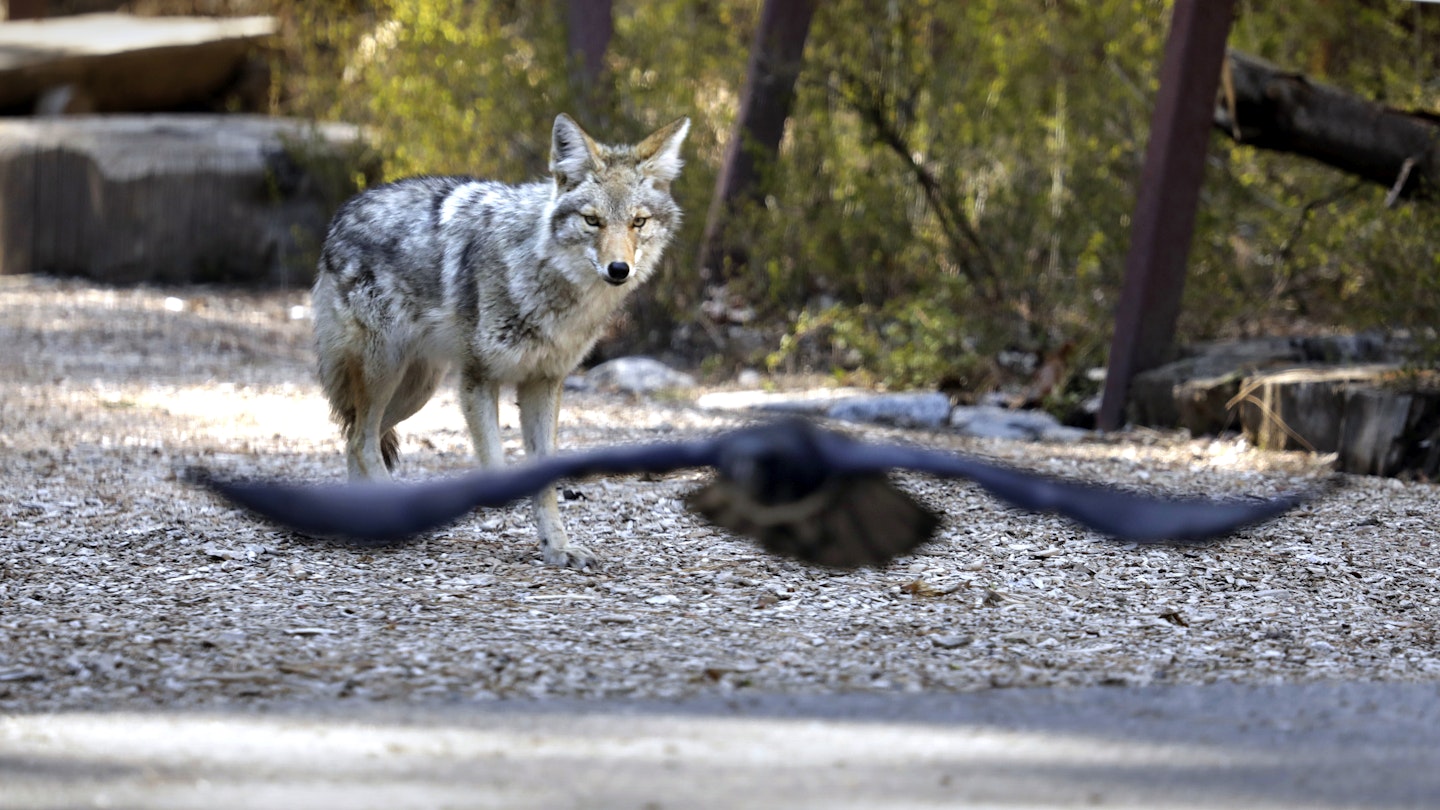Yosemite National Park’s Wildlife Thrives Without Visitors
Rangers in Yosemite National Park have joked that the animals are “having a party” as they explore the landscape in bolder ways without interference from humans.

As we enter our sixth week of lockdown and are cooped up inside, it’s comforting to know that at least our animal friends are having a good time outside. Rangers from Yosemite National Park in California have been sharing updates on social media detailing behind-the-scenes animal behavior as they roam through the park while visitors stay away due to the coronavirus outbreak. They certainly seem to be making the most of it.
“So we’ve been getting a lot of questions about: what are the animals doing since the park has been closed? For the most part, I think they’re having a party,” Ranger Kate, a wildlife biologist at the park, said during a Facebook Live event earlier this month. Kate, who specializes in bears, shared insights about the park’s black bears’ behavior: “So, for the bears, they normally have to pick through little corridors to move through the valley to get from point A to B. With no people around, the bears are literally just walking down the road to reach their destinations, which is kind of cool to see.”
The park’s black bears have just emerged from hibernation and are actively searching for food while exploring territory they’ve previously avoided due to human presence. Yosemite is home to approximately 300 to 500 black bears, and rangers report an increase in sightings during the absence of visitors. Shortly after Ranger Kate’s Facebook chat, a camera captured a bear scrambling up a tree.
“The bear sat high on a branch for a little while and then struggled to decide how to safely get back down, making this one of the more entertaining wildlife sightings we’ve had this spring,” rangers mentioned.

It’s not just the bears who are becoming bolder; bobcats, squirrels, wolves, rabbits, and coyotes have also been displaying more daring behavior. Speaking to Reuters, Yosemite Conservancy President Frank Dean remarked that with the park closed to visitors since March 20, “nature is obviously welcoming the change,” and animal behavior has become “less secretive.”





